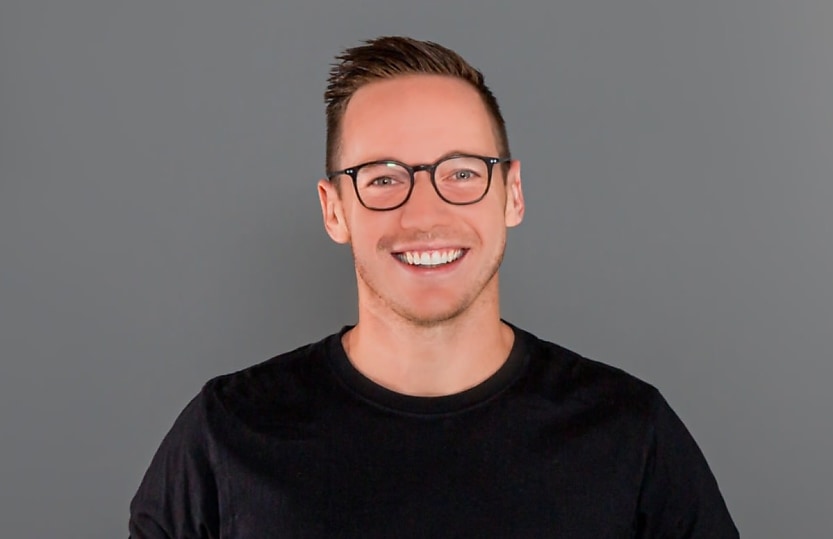Flexible, tech-happy small firms ‘a lure to talented Gen Zs’

Distrust of corporates and the trend towards multiple careers favours smaller practices, says one work-focused futurist.
Small accounting firms have the chance to catch a wave of antipathy towards big business and staff up with young talent but they will need to be flexible and embrace technology, says a work-focused futurist.
Author and thought leader Ben Hamer said there was a trend towards distrusting traditional institutions and corporates along with a need among the emerging generations for “meaningful work”.
“There’s a real opportunity for accounting firms, small businesses or small-to-medium accounting firms in particular to think about how they can really attract emerging talent, attract graduates, attract younger workers,” he said.
“More and more workers are pulling away from working for large corporates.”
“Instead, they’re wanting authentic organisations that live their mission and values and they want to work for an organisation where they can see the impact of what they’re doing on the ground.”
“They don’t want to feel like they’re a little cog in a big machine.”
Mr Hamer, who will speak to some of these trends at the Intuit Get Connected event in early November, said they were being reinforced by profound changes in attitude to life and career and that those entering the workforce now were unlikely to stick with one vocation until retirement.
“Emerging generations are starting to pull away from this idea of joining the accounting firm as a junior, working your way to a partner, flogging yourself, burning the midnight oil for the promise of a potential promotion,” he said.
“They’re not buying a house when they’re in their early 20s. They’re not getting married when they’re in their early 20s. Therefore they don’t necessarily value financial stability and financial security like the generations before them, which means they’re not necessarily as wedded to doing all this unpaid overtime and working in a toxic culture purely because they just want to make sure they have a full-time salary coming through.”
The working lives of the younger generation would involve multiple careers and many different jobs, he said.
“It’s almost guaranteed that the qualification that someone leaves university or TAFE with today is not going to be the occupation that they retire in.”
“People are working for longer than they used to in the past – people entering the workforce today are going to be retiring well into their 70s, if not later.”
“Because of that, people are wanting much more diverse careers. We’re seeing career breaks being more frequent, almost like mini-retirements, happening throughout careers as well.
“And particularly with younger workers, they’re wanting a lot more diversity in what they do, rather than sort of sticking at the one thing for the rest of their lives.
“Because we’re also starting to detach from this idea of job titles, where our career and our job is our identity.”
Feeding this dynamic was technology, with artificial intelligence destined to be the biggest disruptor.
“The role of an accountant today is not going to be the same as the role of an accountant in the future. Sure, the expectation is that you need to do a three to four-year degree and then you enter a graduate role and then you gradually build up your skills working in accounting.
“In the future, the kinds of tasks that an accountant does will be very different, but also automation and artificial intelligence will mean that people may not actually need to do three years of study because tech can do a lot of the work.”
That would remove barriers to entry for people wanting to make a career transition.
He said rather than make accountants obsolete, they would move to tasks where face-to-face interaction and the uniquely human ability to interrogate data were more important.
“In the future, an accountant will be much more about building relationships and providing advice rather than doing number crunching.”
“They’re able to understand your personal situation. They’re able to help you plan and forecast and therefore ask questions to give you targeted, tailored and personal advice.
“Anything that’s highly generic, that will be artificial intelligence. There will be a personalisation that comes from artificial intelligence in terms of how they tailor that advice. But unless we all have a significant degree of financial literacy and therefore can make the AI work for us, we’re still going to need accountants to be that intermediary.”
He said for small practices to attract talented graduates they needed to embrace technology.
“It’s important to play with the technology. Don’t be resistant to the tech that’s coming. Build on an understanding of what’s coming and how you can use it, but actually try it.”
The emerging workforce also demanded flexibility in the home/office balance, which was often tricky for smaller firms – but vital.
“They need to embrace more modern and contemporary ways of working. That includes flexibility, which we know is really important to the younger generations, and they need to embrace technology because the generations coming through are digital natives.”
Intuit QuickBooks’ Get Connected event runs from 2–3 November at Sydney’s Allianz Stadium.
About the author







